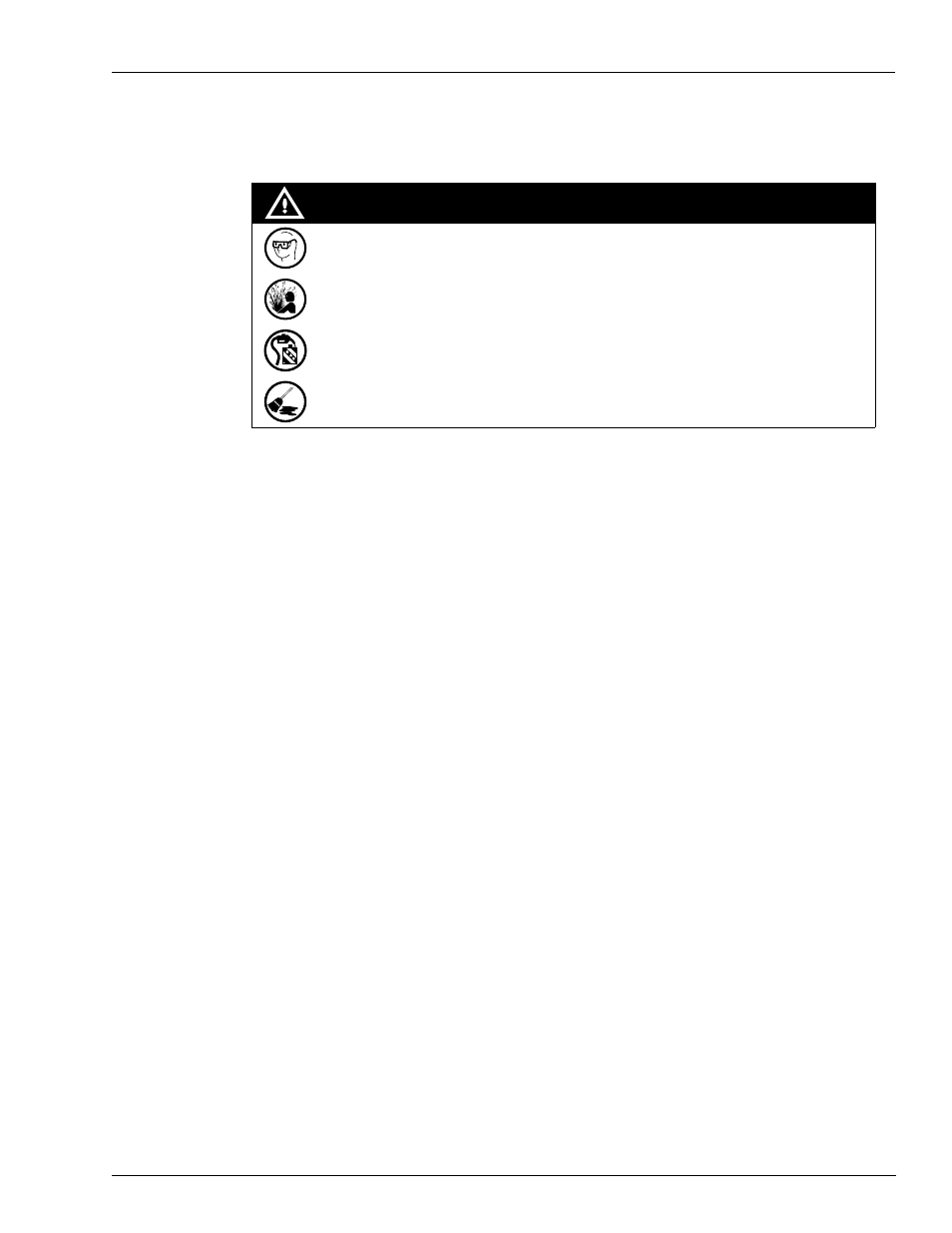Hanging hardware, About hanging hardware, Hoses and flow restrictors – Gasboy Atlas Start-up User Manual
Page 161: Warning

MDE-4334D Atlas™ Start-up and Service Manual · July 2013
Page 6-41
Hanging Hardware
Hydraulic/Mechanical Components
Hanging Hardware
• Wear eye protection. Residual pressure and entrapped fuel may still be present
and may drain or spray while removing the parts.
• Fire and explosion could result in severe injury or death.
• Test and close the shear valves involved. Shut off power to the unit.
• Remove the parts slowly. Collect fuel in approved containers.
• Clean up all spills promptly.
WARNING
About Hanging Hardware
Hanging hardware is the component that is attached to the outlet casting. This includes hoses,
nozzles, swivels, spacer hose, and breakaways. The hanging hardware is tested for leaks and
electrical continuity. The hanging hardware may be manufactured by companies other than
Gasboy. Ensure that you follow all manufacturer’s recommendations.
DEF units require special hanging hardware that is compatible with DEF fluid. Do not use
standard gasoline or diesel hardware for DEF units.
Hoses and Flow Restrictors
This section explains about the hoses and flow restrictors.
Inspecting Hoses
Check hoses regularly (at least once a week or on complaint) for leaks and damage. Inspect
and replace the hose assembly, as required. Following conditions may contribute to damage or
problems:
• Twisting and curling puts unusual stress on hose parts.
• Repeated flexing of the hose in the same spot can cut, tear, or split the hose cover.
• Flattened hoses from vehicle drive-over can cause restricted flow and hose reinforcement
damage.
• A soft spot is a sign of internal damage to the hose reinforcement. Reinforcement may
appear through the cover.
• Loose or cracked hose couplings can cause fuel spills.
• Hose bulges are a sign of pressurized gasoline pushing against the cover. A full rupture
could occur at any time.
• Use of Teflon tape for NPT hose ends may result in damage to the dispenser outlet casting
during assembly.
• Reuseable hose end couples are generally not recommended as improper repair/assembly
can cause leaks, lack of continuity, or hose separation.
• Use of excessively long hoses may create a trip hazard for customers. Use hose retrievers,
hose reels and so on, to eliminate trip hazards.
